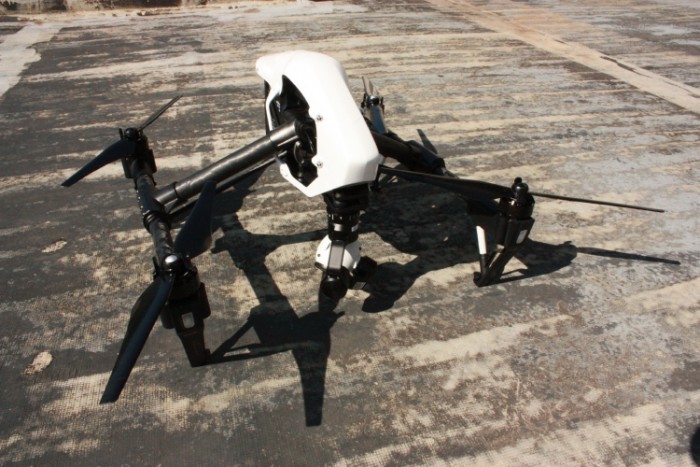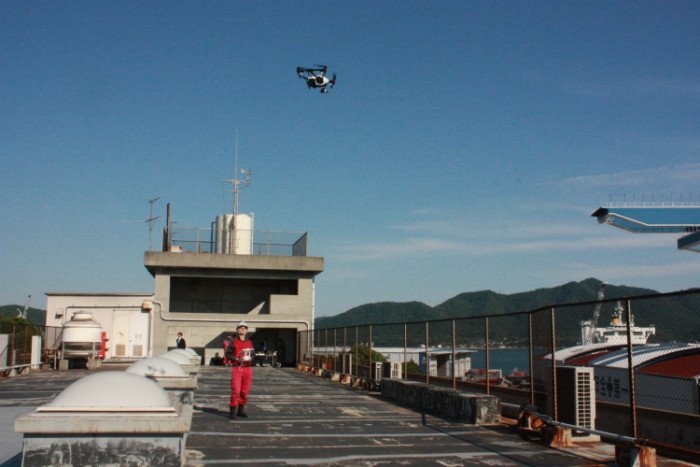According to a recent press release and video, Japanese company Tsuneishi Holdings has begun preliminary testing for commercial drone use in a variety of cost-saving applications. The video, produced by V-cube Inc, shows the 3-kilogram quad-copters hovering around the facility, collecting and transmitting visual information through HD video and camera feeds.
Saving Money and Lives at the Same Time
Tsuneishi is investigating the use of surveillance drones to inspect equipment, build ships, report emergencies, and tackle other important tasks. In particular, drone developers hope to use the machines to perform operations that are quite dangerous and time-consuming for human workers to accomplish.
The original tests occurred over the course of four days, from May 18-21st, and show drones whizzing around the facility as they inspect and measure equipment on high-roofs and ceilings, greatly reducing the man-hours and danger that human workers would have to endure to complete these same operations.

Photo Credit: Tsuneishi Holdings Corporation
Tsuneishi also released a statement discussing the outcomes of these tests: “We have high hopes that this latest technology will help us increase efficiency at our factories and facilities, and also allow us to gather information quickly in times of disaster.”
They continued, “According to the information provided by the videos and photos, some effective means would be found to improve the efficiency in equipment maintenance checks and in the management of the construction process […] The drone was also tested to see if it would prove useful in times of disaster by being sent at full speed to a designated location to check the situation by referring to the visual information.”
Man Versus Machine
These developments at Tsuneishi represent part of a larger trend in the commercial application of drones around the world. Business Insider reports that the annual growth rate for civilian and commercial drones is 400% larger than the growth rate for drones in the military sector. In other words, despite all the attention the media gives to armed drones in foreign policy, they may also impact people domestically through the rise of an automated workforce.

The advantages are obvious: drones are cheap, efficient, and easy to use for a variety of specialized mechanical tasks. They also eliminate liability for damages and injuries in potentially hazardous workplaces – shipyards included. Yet drones may also pose a threat to shipbuilders and dock workers in an already destabilized economy.
It remains to be seen whether drones will be an ally or adversary to workers in the future. Drone manufacturers and advocates claim that by performing hazardous, menial tasks with unprecedented speed and efficiency, drones will allow employees in a variety of sectors the freedom to apply their specialized knowledge towards innovative design and creative problem solving. That might be wishful thinking, but either way one thing is clear: drones are here to stay.

